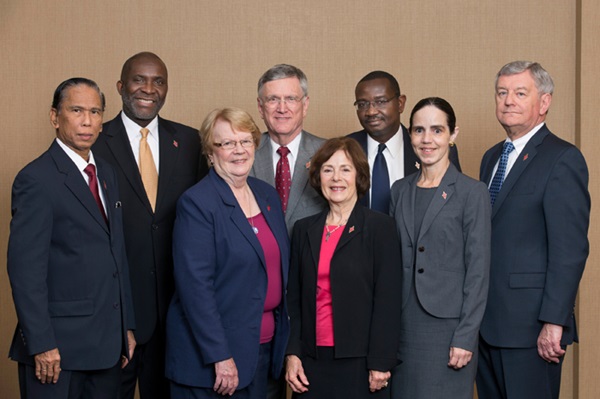The 2016 General Conference now has the responsibility of determining what happens to three commissions that Plan UMC Revised has put on the chopping block.
The Judicial Council, The United Methodist Church's top court, ruled May 10 that the revised version of the agency restructure known as Plan UMC has parts that violate the denomination's constitution and other parts that are entirely constitutional.
The church court affirmed that General Conference has the authority to discontinue commissions, as proposed under Plan UMC Revised. The ruling did not remark on the plan's proposal to increase African representation on agency boards.
Lonnie Brooks, one of the main drafters of Plan UMC Revised, considered the ruling mostly a win. He said fixing the plan to bring it in line with the Judicial Council ruling "is fairly simple."
"Plan UMC Revised" includes the following changes to the current structure:
- It eliminates the United Methodist commissions on Religion and Race and the Status and Role of Women.
- It eliminates the Commission on Archives and History.
- It also changes the Commission on United Methodist Men to simply United Methodist Men.
- It reduces the size of some agency boards and the Connectional Table, while increasing representation from outside the United States, especially Africa.
- It replaces the General Secretaries Table, which includes the 13 general agencies' top executives, with a General Secretaries Committee, which includes the top executives of each remaining agency.
The Rev. Clayton Oliphint, the submitter of Plan UMC Revised and a delegate from the North Texas Conference, has argued the changes will increase focus on fostering vital local congregations.
Dawn Wiggins Hare has a different take. She is the top executive of the Commission on the Status and Role of Women and a delegate from the Alabama-West Florida Conference.
She said General Conference will decide whether the denomination's work on race, gender and history "are still values" of the church.
The Rev. Alfred T. Day III, the top executive of Archives and History, said his commission welcomes the opportunity to give witness to the relevancy of its ministry. In helping the church understand its past, he said, "we resource the church's best path to the future."
The General Council on Finance and Administration estimates that Plan UMC will not save local churches money.
Oliphint has noted that after decades of declining United Methodist membership in the United States, it's time think differently about church organization.
"Doing things the way we have always done them may not be the most effective way of accomplishing our mission going forward," he said.
Heather Hahn, multimedia news reporter, United Methodist News Service
One of seven apportioned giving opportunities of The United Methodist Church, the General Administration Fund implements trustworthy administrative oversight, supports the legislative processes of the church and curates The United Methodist Church's rich history. Please encourage your leaders and congregations to support the General Administration Fund apportionment at 100 percent.





